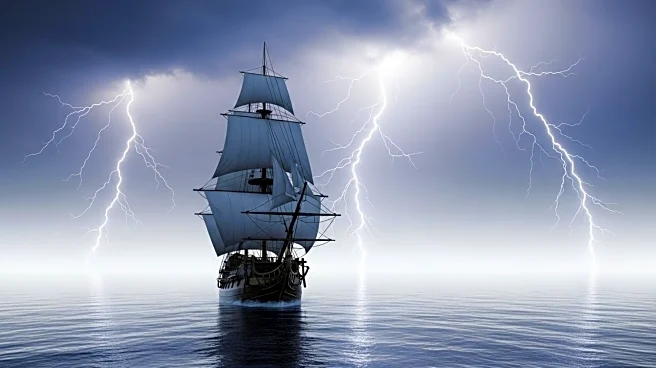What's Happening?
Cypriot authorities have arrested Alexei Kratzgur, a Russian-Israeli businessman, at Larnaca port in connection with the 2009 hijacking of the cargo ship Arctic Sea. Kratzgur was detained as a passenger on a cruise ship traveling from Haifa after police discovered an outstanding Interpol red notice issued by Russia. The Larnaca District Court has begun extradition proceedings, with the next hearing scheduled for November 14. Kratzgur will remain in custody until then. Russian authorities accuse him of participating in planning and executing the hijacking of the Malta-flagged vessel, which departed from Jakobstad port in Finland on July 23, 2009, carrying timber destined for Algeria. Armed men disguised as police officers attacked the vessel in the Baltic Sea on July 24, 2009. The Russian navy recaptured the ship on August 17, 2009, near the Cape Verde Islands in the Atlantic Ocean.
Why It's Important?
The arrest of Alexei Kratzgur revives one of the most enigmatic maritime cases of recent decades, which has been surrounded by conspiracy theories and international intrigue. The case raises questions about the involvement of intelligence services and the true nature of the ship's cargo, which some speculate included secret Russian weapons. The arrest could have implications for international relations, particularly between Cyprus, Russia, and Israel, as extradition proceedings unfold. The case also highlights the complexities of international law enforcement and the challenges of resolving long-standing criminal cases across borders.
What's Next?
The extradition proceedings for Alexei Kratzgur are set to continue, with the next hearing scheduled for November 14. Kratzgur's Israeli attorney has questioned the timing of the Russian request, citing years of inaction by Russian authorities. The outcome of the extradition process could impact diplomatic relations between the involved countries. Additionally, the case may attract further media attention and public interest, potentially leading to new revelations about the 2009 hijacking incident.
Beyond the Headlines
The arrest of Kratzgur may reignite discussions about maritime security and the effectiveness of international cooperation in combating piracy. The case also underscores the potential for geopolitical tensions arising from unresolved criminal cases involving multiple nations. Furthermore, it highlights the role of media in shaping public perception and the narrative surrounding complex international incidents.










